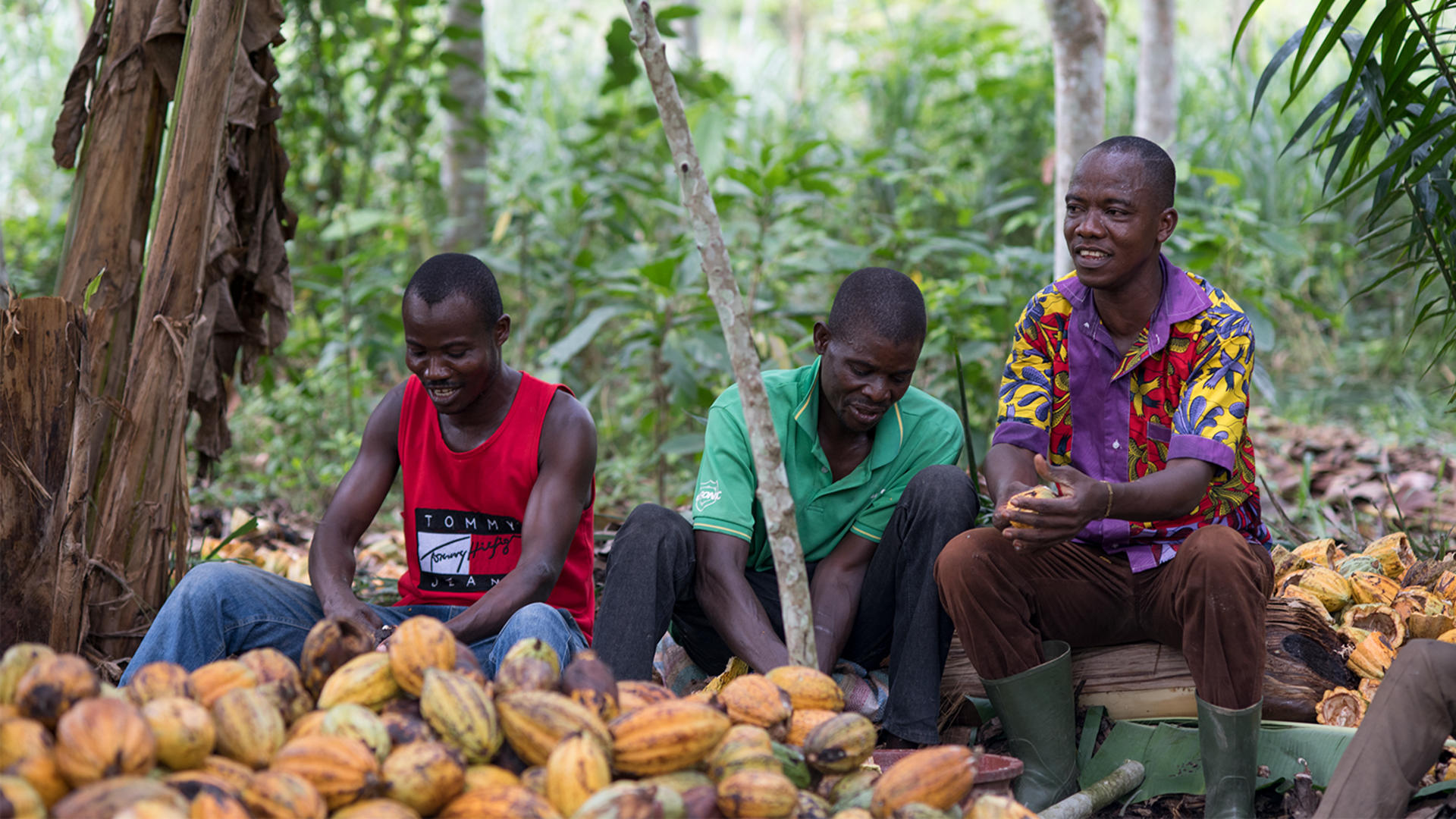
Sustainable products
How to crack nuts without a nutcracker
Got a bagful of nuts, but no nutcracker? With our hacks you won’t even need one!
navigation

Sustainable products
When you bite into a piece of fine chocolate, you probably don’t think about deforested areas. Unfortunately, this is exactly what often happens when cocoa is grown. Migros has launched a project to counteract deforestation.
Chocolate production is not without its problems. There are several reasons for this: climate change, nutrient-poor soils and low cocoa prices jeopardise the livelihoods of many farming families who grow cocoa. These challenges force them to open up new areas for cultivation, which leads to forests being cleared. This releases carbon dioxide into the atmosphere, which in turn has a negative impact on the climate.
To make the cultivation of cocoa more sustainable, Migros launched the «Agroforestry Climate Protection Project» at the end of 2020, together with the Necaayo cocoa cooperative and the myclimate foundation. The aim of this long-term project is to make cocoa production more sustainable and prevent deforestation while improving the incomes of cocoa farmers.
In the dynamic agroforestry system, the plantations are reforested with native plant varieties. Part of this involves planting extra trees for shading in the cocoa fields, which positively influence the cocoa microclimate and make it more resilient to climate change and disease. They also absorb CO2 from the air, improving the cocoa’s carbon footprint. At the same time, the integrated planting of indigenous fruit trees and wood species offers the farmers an important additional source of income, as fruit and wood can be marketed locally.
1 cocoa pod is enough for 4 bars of chocolate.
516 farmers work in the cocoa cooperative in Côte d’Ivoire, from which Chocolat Frey has been sourcing cocoa since 2012.
2,500 hectares of cocoa plantations, which is roughly equivalent to the area of 3,500 football pitches, are being reforested with native plant varieties as part of the project.
You can find out more about our commitment to a wide range of sustainable products in the stories.